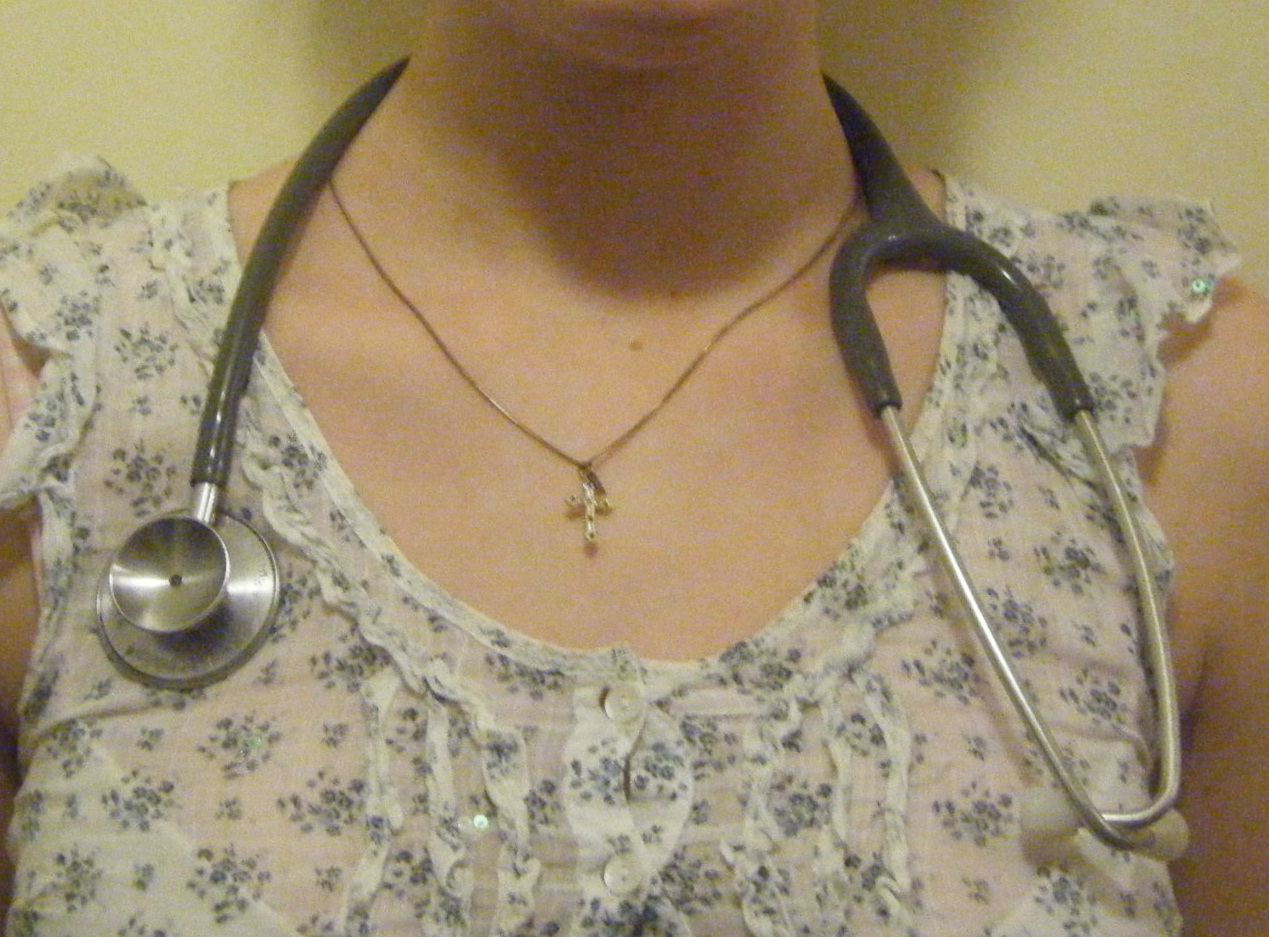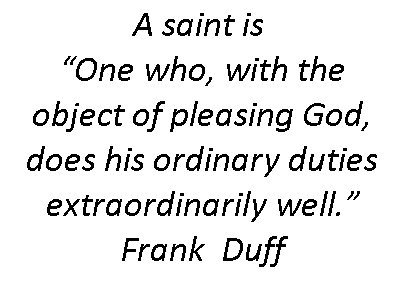Catholic Medical Quarterly Volume 61(4) November 2011, 8-9
Great Medical Lives: Can Doctors be saints?
Dr Adrian Treloar
This is one of series of articles on great medical lives.
Already published in this series,
St Elizabeth of Hungry, a nurse and
Professor
Jerome Lejeune the man who discovered the cause of Down'syndrome.
 On my ward recently, the domestic came up to me and gave me a pamphlet
written by Frank Duff entitled “Can we be saints?” It’s a lovely pamphlet, which
set me thinking about the link between our vocations and our journey towards
heaven.
On my ward recently, the domestic came up to me and gave me a pamphlet
written by Frank Duff entitled “Can we be saints?” It’s a lovely pamphlet, which
set me thinking about the link between our vocations and our journey towards
heaven.
Frank Duff points out that saints are often thought of as people who do
extraordinary penances and work miracles. But the ample opportunities for
penance at work are in no way extraordinary, and few of us do miracles.
Frank Duff then gives his definition of a saint as “One who, with the object of pleasing God, does his ordinary duties extraordinarily well.” This actually sets out rather well what a Catholic doctor nurse or health worker is expected to and should do. We are not paid to convert our patients (and indeed attempts to impose faith upon vulnerable people are both wrong and often counterproductive). But we are there to provide excellent clinical care with the best possible treatment and support. This will be achieved by diligence, the pursuit of excellence and a consistent reliability which delivers safe, effective and competent care. No Catholic doctor can be proud of what they do if it does not conform to the highest standards of health care.
 On the other hand, in our work we are also there to support, nurture and develop
in our patients many virtues including those of trust and forbearance. In doing
this, we will often nurture our patients through times of great crisis. It is
well recognized that good spiritual care can do a great deal to improve outcomes
from health care episodes both for the patient and also for their families.
Enabling access to spiritual care may also be an important part of the care that
we offer.
On the other hand, in our work we are also there to support, nurture and develop
in our patients many virtues including those of trust and forbearance. In doing
this, we will often nurture our patients through times of great crisis. It is
well recognized that good spiritual care can do a great deal to improve outcomes
from health care episodes both for the patient and also for their families.
Enabling access to spiritual care may also be an important part of the care that
we offer.
But underneath all this, with the huge stresses and strains of a good medical life, the hope of one day becoming a saint requires a strong spiritual life. Frank Duff tells us that
- ‘Prayer must be brought to occupy a prominent place in our lives’
- ‘We are to do what it is our duty to do - and at the right time’
- ‘Work and duty are Holy things when the idea of God is in them’ and
- ‘We must pray frequently.’
There are also temptations. We are told that:
- ‘Sin can easily get in the way’ with wronging our employer or those who work for us (self love, lying, envy etc.)
- ‘The danger of human respect is not sufficiently recognized. In almost every Catholic it is a weak spot.’
Despite these temptations and our weaknesses, doctors and nurses can and should aspire to be saints. Most of all we will do this by doing our ordinary jobs extraordinarily well.
But, on the other hand, we can never be saints at work. All saints are dead. Even if others may think we are saints, we must never put on the mantle of sainthood. Humbly we must accept the understandings that our faith brings us and we must apply our faith to produce the best possible outcomes for our patients. A halo worn at work is a dangerous thing indeed. Halos are shiny nice things, but if you wear one even for a moment at work, you can be sure that it will be tarnished, dented and in the bin before you know it.
Finally, perhaps the greatest failing of those of faith is to think that they can rely upon their faith alone to set them out as clinically excellent from the rest the profession. Those who shelter behind their faith can be pretty ropey clinicians.
In all we do, may we aim to do it extraordinarily well.
References
- Can we be saints, by Frank Duff. Published by International centre for the Legion of Mary, Dublin.
- St Elizabeth of Hungary. Dr Anthony Cole . Catholic Medical Quarterly, 2010 60 (4) 31-33
- A Doctor For All Seasons: Jerome Lejeune. Catholic Medical Quarterly,
2011 63 (3) 4-6.
